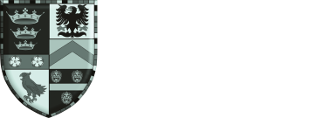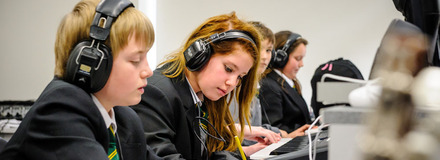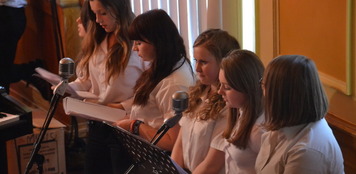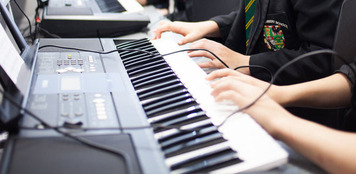Studying music provides pupils with a vital opportunity to stimulate and explore their creative, emotional and expressive development. The purpose of music is to nurture the next generation of musicians and critical thinking music-lovers. Our aim is to prepare all pupils to appreciate music for its own sake, in order to enhance and enrich their lives and open their eyes to the musical world around them, contributing to their sense of wonder, and joy. This aligns with Malet Lamberts’ values of teaching subjects for their intrinsic worth, providing them with a broad and balanced curriculum, and ensuring social justice.
Pupils will be guided through the vast musical landscape, affording them the opportunity to listen to, appraise, and analyse Western Classical music, Popular music, Blues and Jazz, and music from other cultures.
Pupils will develop their understanding of music-reading, pitch, rhythm, melody, harmony, structure, texture, and instrumentation, applying this knowledge to become competent in performance and composition.
Facilities
The Music department comprises two purpose-built classrooms, a recording studio, an ensemble room and three practice rooms. Both classrooms are equipped with sixteen PC workstations, complete with industry standard software, and sixteen musical keyboards. The recording studio is also equipped to industry standard. The department owns a large collection of electric and acoustic guitars, orchestral instruments and two class sets of African drums. These outstanding facilities allow our pupils to explore their musical potential by engaging in a varied and stimulating music curriculum.
Courses
AQA GCSE Music: Learning spans across four areas of study - AO1: The Western Classical Tradition, AOS2: Popular Music, AOS 3: Traditional Music, AOS 4: The Western Classical Tradition Since 1910.
Pupils are assessed across three components - Performing, Composing, and Understanding Music. For the Performing component, pupils must prepare one solo and one ensemble piece. Combined performances should equal 4 minutes or longer. For the Composing component, pupils will write one free composition, set to a brief of their choosing, and one composition to a brief set by the exam board. Combined, compositions should equal 3 minutes or longer. For the Understanding Music component, pupils will sit a 1hr 30 exam at the end of Y11. The exam will include questions that cover unfamiliar pieces from all four areas of study, and questions about four set Study Pieces, which pupils will learn about throughout the two-year course. Performing is worth 30% of the final mark, Composing is also worth 30%, and Understanding Music is worth 40%.





